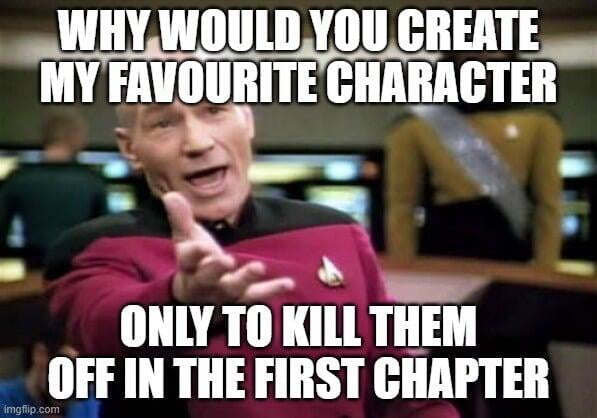Dear Reader,
If you followed instructions, you opened this in the year 2114. If not, well…I guess you’re early to the party. Help yourself to snacks.
What does your world look like? For extra points, use only titles from your bookshelf.
Brave New World? The Hunger Games? Great Expectations? All’s Well that Ends Well?

There are so many questions I want to ask about the future.
Do you still fall asleep with a paper book between your hands? Is the Da Vinci Code an academic text? Is Scandi noir still a thing? Have we finished with the girls on trains, the ones with the dragon tattoos – has Gone Girl…gone? Are we still arguing about whether or not some books are “real” literature? Do androids attend Do Androids Dream of Electric Sheep book club discussions? Do they feel misrepresented in human fiction?
How is the natural world faring in bookshops?
There’s a book from my time I wonder if you’ve read – it’s called Lab Girl by the geobiologist Hope Jahren. She says to look out the window, and that if we see something green like a leaf or a tree when we do, that means we are seeing “one of the few things left in the world that people cannot make”. In 2114 does a tree’s three hundred million-year old design still, dare I say, stump you?
I hope our books about climate change, plastics and deforestation become written entirely in the past tense, that we preserve those things in the world we cannot make. If you’re reading this in the year 2114, there are exactly 100 new stories that I hope will also be preserved. Six years ago, in 2014, the Future Library Project began – the brainchild of artist Katie Paterson, it aimed to collect a secret, unseen, manuscript from one author every year until 2114, when they would then be removed from ‘The Silent Room’ and published. How? There is a forest being grown in Norway specifically for the purpose of printing these books in a century, but I wonder if that will seem old-fashioned to you, or an unnecessary violation of the natural world. When Gene Rodenberry wrote the beloved science-fiction character Jean Luc Picard into being, he created a Captain of starship in the 24th Century who likes to read paper books as galaxies hurtle past at warp speed. I think the consensus of this project is that in a century we’ll still be as sentimental as a futuristic Starfleet Captain about the tactile appeal of a story that you can read at the beach, accidentally sit on, or throw across the room in disgust when all your favourite characters have been killed.

Margaret Atwood, David Mitchell, Sjón and Elif Shafak have contributed their work to this literary time capsule so far. All we have now are titles and the odd whisper of a clue. Margaret Atwood’s manuscript Scribbler Moon, I can only guess is a loose adaptation of Titanic set in space – ‘Paint me like one of your Moon girls, Jack’. Perhaps not. I suspect there’s a chance these are red herring titles anyway, and the real ones will only be revealed to readers in time. David Mitchell has let slip that his manuscript references the lyrics of Here Comes the Sun. Will The Beatles be considered ‘classical’ music in a hundred years? Will you listen to Cardi B on something like a radio and call it ‘so retro’ before a news bulletin announces that these stories are publishing? I hope our writings and the things we make, tell you how, despite evidence to the contrary, we do care about the future, and the future of things we cannot make.
Unless I find a juice cleanse that works actual miracles, there’s no way I’ll age well enough to join you. I suspect I have this in common with H.G. Wells when he was dreaming up The Time Machine: Major FOMO. You can’t tell us what’s on the other side of that Silent Room of manuscripts, just like you can’t tell us what’s on the other side of this month, this year, and the ones that follow. Until then, we’ll do the same thing we’ve always done. We’ll enjoy the magic of not-knowing, of living in the present, and celebrating the books we can write and tell each other about. We will maybe actually write that Titanic adaptation set on the Moon if Margaret Atwood won’t oblige us this century. (When I say ‘we’, I 100% mean me – and have already cast Tom Hardy in the title role – Back Off).
In this century, without even picking up a book, we already have real-life stories of scientists, doctors, activists and nurses being everyday heroes. And speaking of centuries, one of them is a century old himself – a 100-year-old veteran walking laps around his garden raising millions of dirhams to help in the current health crisis. I do wonder about the stories we tell in the future, but I think we’ve got enough great ones here and now to last a lifetime. My FOMO? Gone like the Wind.
We may wonder what books you’ll be reading in the future, but ‘Will we still be reading?’ hardly seems a necessary question, even if you could actually send an answer back. Of course we will.
And I bet we still argue about who won the darned Booker Prize.
Best future wishes,
Annabelle
P.S. – if you’re able to just hint if they bring back Firefly though – that’d be GREAT.

Written by Annabelle Corton
Annabelle Corton is part of the team that puts together the programme of events for the EmiratesLitFest each year. She runs the Festival Book Club and has a background in guesting and presenting on talk radio shows about various literary topics. She likes words like ‘equinox’ and ‘vespa’, and loves a good pun. She’ll read anything in reach, but has a fondness for witty tussles of good vs. evil on page and screen, especially vampire fiction where a great deal is at stake. Get it? Stake? She’s not sorry.

